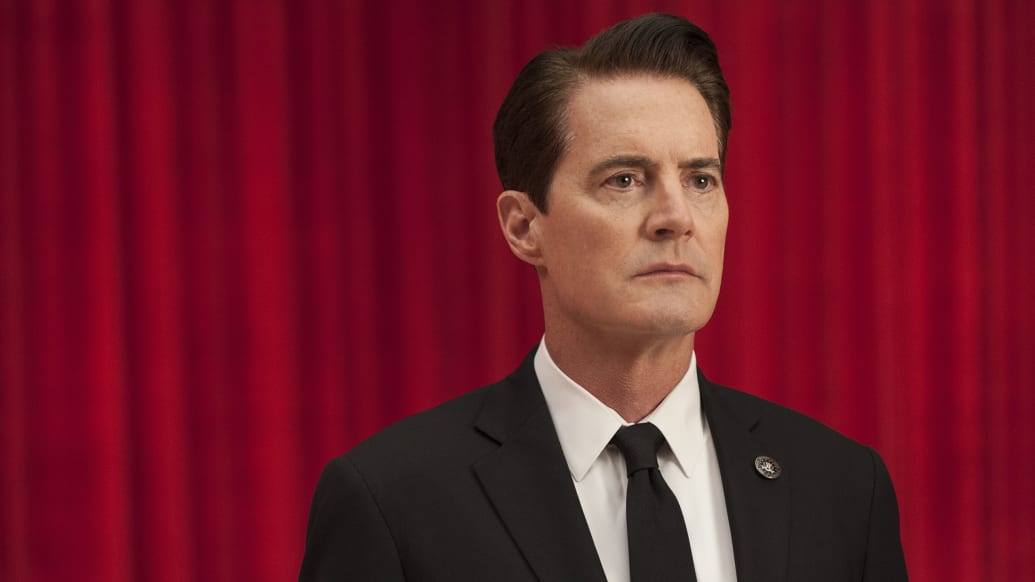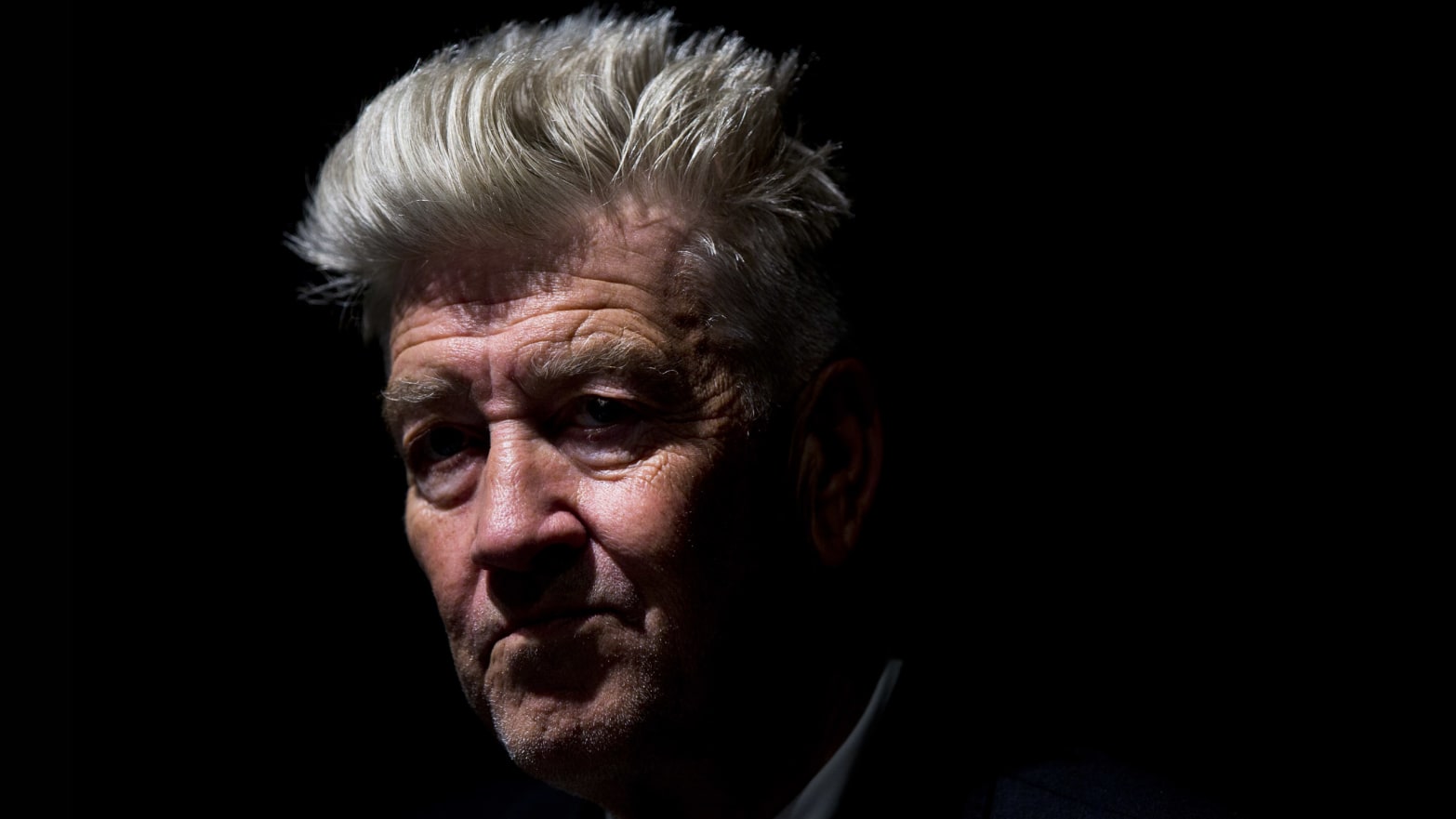There is a rumor about Twin Peaks that goes up to the highest levels of government.
In the book Reflections: An Oral History of Twin Peaks, Jules Haimovitz, a TV executive at Aaron Spelling Productions—which produced the original series—recounted a story about a strange call Spelling received one night from Carl Lindner, the co-owner of Spelling Productions, demanding to know who killed Laura Palmer. Haimovitz brought the query to David Lynch, who, as is his wont, refused to divulge his secret. So Haimovitz phoned Lindner back, asking him who wanted to know. “President Bush,” Lindner replied.
Yes, Lindner was apparently good pals with then-President George H.W. Bush, who called in the favor on behalf of Soviet leader Mikhail Gorbachev—an apparent fan of the show.
“What happened was Gorbachev called Bush, who called Carl, who called Aaron, who called me,” recalled Haimovitz. “So I called David back and I said, ‘This isn’t going to go anywhere, it’ll be a secret. You have to tell me who Laura’s killer is.’ That’s when I realized David had no idea who killed Laura Palmer.”
When I mention Haimovitz’s story to Lynch, he lets out a hearty laugh. “I never heard that one!” he says, cackling away.
That Lynch had no idea who killed Laura Palmer when he conceived of the small-town mystery is one reason for its uncanny sense of intrigue; it is a narrative Rorschach test of sorts. And like Lost, Lynch’s Twin Peaks was always more about the diverse, delightfully kooky cast of characters than the mystery itself. What made the show indelible was how Lynch imbued each role, from Audrey Horne to the Log Lady, with a touch of humanity and tenderness. You were curious about the secrets of the Red Room, but you fell in love with these eccentric bumpkins.
“I’ve been haunted by the whole world of Twin Peaks, and I really liked going back in there,” Lynch tells me. “It’s family—it’s a family thing—and all the new people now are family, so it’s a great feeling. There are over 230 actors in this, and they’re all great.”
The return of Twin Peaks is in large part thanks to Showtime, a channel that, despite a protracted contract negotiation—which at one point included Lynch leaving, followed by a viral #SaveTwinPeaks campaign by the cast members to coax him back—did the unthinkable: Give an uncompromising 71-year-old auteur full creative control over an 18-episode season of television. What’s more, Lynch hadn’t directed a feature since 2006’s Inland Empire, a film that grossed less than a million dollars stateside. To call this an inspired leap of faith is a massive understatement.
And yet here we are, with Lynch—along with collaborator Mark Frost—back at the helm of a beloved cult classic, and joined by the lion’s share of the original cast alongside newcomers like Laura Dern, Naomi Watts, Michael Cera, Jennifer Jason Leigh, Ashley Judd, Eddie Vedder, and Trent Reznor. Also returning is master composer Angelo Badalamenti, whose creepily ironic Twin Peaks score is perhaps the greatest in TV history.
Lynch says he was encouraged to return to the series, which is set exactly 25 years after the original, by the line Laura Palmer (Sheryl Lee) delivers to Agent Dale Cooper (Kyle MacLachlan) in the Red Room during the Season 2 finale: “I’ll see you again in 25 years.”
“You know, it went a long way with the line of Laura Palmer saying, ‘I’ll see you again in 25 years,’ so that was one indication, and, well it just seemed like a good thing,” says Lynch.
Coaxing information out of Lynch about the new iteration of Twin Peaks is like chatting with his FBI Agent Gordon Cole—impossible unless you’re Shelly (Mädchen Amick). Even the stars of the show weren’t shown their scenes until its L.A. premiere Saturday night. He does acknowledge that the new season is tied to the finale of Season 2, which saw Agent Cooper trapped in the extradimensional Black Lodge while his evil doppelgänger, controlled by Bob, is on the loose.
I mention how Larry David carries around a “joke book” with him everywhere he goes, jotting down observations and jokes as they come to him, and wonder if Lynch has a “dream book” to document his otherworldly visions.
“I love Larry David. I think he’s one of the funniest guys on the planet,” says Lynch, before adding, “You always write your ideas down, absolutely. And you write your ideas down in such a way that if you read your words, the idea comes back in full.”
“Ideas are triggered by any number of things. I’ve gotten a couple ideas from sleeping dreams; I get ideas from daydreaming,” he continues. “The idea for the Red Room came when I was leaning against a warm car at sunset, and the idea for Bob came when I heard some girl say, ‘Don’t lock yourself in Laura’s room’ to Frank Silva. There’s a lot of ways ideas come, and I always say they’re a gift. They weren’t there, they weren’t there, they weren’t there, and suddenly they’re there. And I didn’t do anything. I just caught the idea.”
Despite his surrealist brand of cinema, Lynch confesses that none of his ideas have ever come to him while under the influence of psychedelics. “My friends, you know, they say about peer pressure, they were all taking drugs and they told me not to take them,” he says in his folksy Missoula, Montana, accent. “I followed their advice.”
In addition to the Gorbachev tale, another long-told rumor surrounding Twin Peaks is that it was inspired by the life of Marilyn Monroe. Lynch and Frost were said to be working on a screen adaptation of the Monroe biography Goddess, but when they couldn’t get the rights, created Twin Peaks instead and infused it with aspects of Monroe’s tragic life.
But Lynch says that is pure baloney. “You know, there are many, many different girls in the world,” he offers. “We all do love Marilyn Monroe though, that’s for sure. It’s not about Marilyn Monroe, but she’s one that will make you dream.”
There was, of course, a considerable dropoff in quality between Seasons 1 and 2 of the original Twin Peaks—due primarily to Lynch departing midway through the second season to work on the film Wild at Heart, before returning to direct its spellbinding finale. Lynch also suffered creative differences with executives at ABC, who demanded that he reveal Laura Palmer’s killer—her father, Leland Palmer (Ray Wise), inhabited by Bob—prematurely. Lynch has frequently called it one of the biggest regrets of his career.
“It’s a whole bunch of things that came together. I for sure was against it, and I always felt that it’s a story of the little goose that laid the golden eggs and you don’t want to kill that goose—not for a while, anyway,” says Lynch, still frustrated by it.
He adds, “It’s like you’re driving down the highway and you’ve got a real good engine, but then someone puts sugar in the gas tank and it blows it right out, and then they give you a lawnmower engine or something.”
“But I wasn’t a big fan of Season 2, so let’s talk about something else.”
Though he says “I don’t want to talk politics,” Lynch does acknowledge that the climate he’s releasing the new Twin Peaks into is far different from that of the early ’90s. For example, his FBI Agent Dale Cooper, played with expert precision by Kyle MacLachlan, served as a square-jawed symbol of American integrity; a paragon of virtue. The new show is, however, coming out at a time when the FBI is making more front-page headlines than ever before, given the recent firing of FBI Director James Comey, the search for a succssor, and the bureau’s investigation into alleged Trump-Russia collusion during the recent U.S. presidential election.

Showtime
When I ask Lynch about the image of the FBI then versus now, he chuckles.
“I always say, when you start something it’s at least a couple of years before it’s finished and you don’t know what the world will be like when the thing is finished,” he asserts. “But, hey, this is what’s happening right now.”
He’s similarly tight-lipped when it comes to whether or not the late David Bowie, who played FBI Agent Philip Jeffries in the prequel film, Twin Peaks: Fire Walk With Me, will make an appearance in the new series. Bowie died in January 2016, while Twin Peaks: The Return, which features appearances by now-deceased original cast members Catherine E. Coulson (The Log Lady) and Miguel Ferrer (Albert Rosenfield), started shooting in September 2015.
“I don’t know…,” Lynch says of a possible Bowie cameo. “I can’t really get into that either. It sure is a shame that Bowie died though, that’s for sure. He was really great.”
When I ask him about how Twin Peaks shaped the decades of TV that followed, from The X-Files to Broadchurch to True Detective, he refers me to his personal physician.
“I don’t really see all these shows that you’re talking about,” says Lynch. “And you know, I would say my doctor has asked me not to think about stuff like that. You have to talk to him.”
I have to talk to your doctor? I reply, chuckling while picturing someone resembling Russ Tamblyn’s Dr. Jacoby.
“You have to talk to him!” exclaims Lynch.
Lynch will co-write and direct all 18 episodes of Twin Peaks’ new season but won’t disclose whether or not his contract extends beyond the one season.
“We’ll see how it goes in the world. That’s what we’ve got to see,” utters Lynch. “All I can say, Marlow, is that I love the world of Twin Peaks and the people in it, so it would not be a hardship. But like I said, we’ll have to see what the people think.”
He does have some advice for how to watch the new Twin Peaks:
“The thing is, it’s very important to see something with a quiet room, good sound, good picture, no interruptions. It gives you a chance to go into another world and have a different experience. So in that case, it doesn’t matter what goes on in the so-called ‘real’ world; it gives you a chance to go into another world. And that is a beautiful, beautiful thing.”

